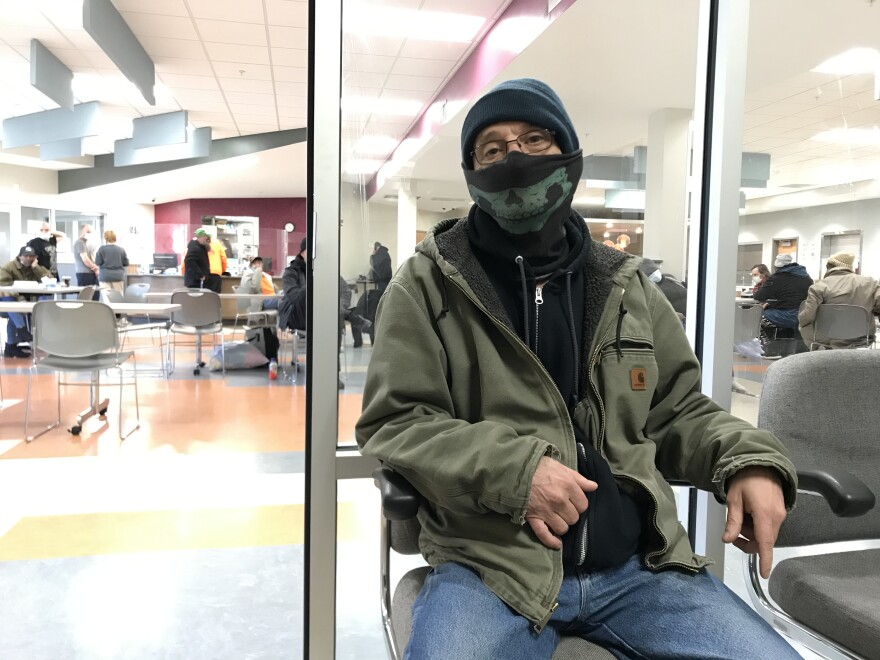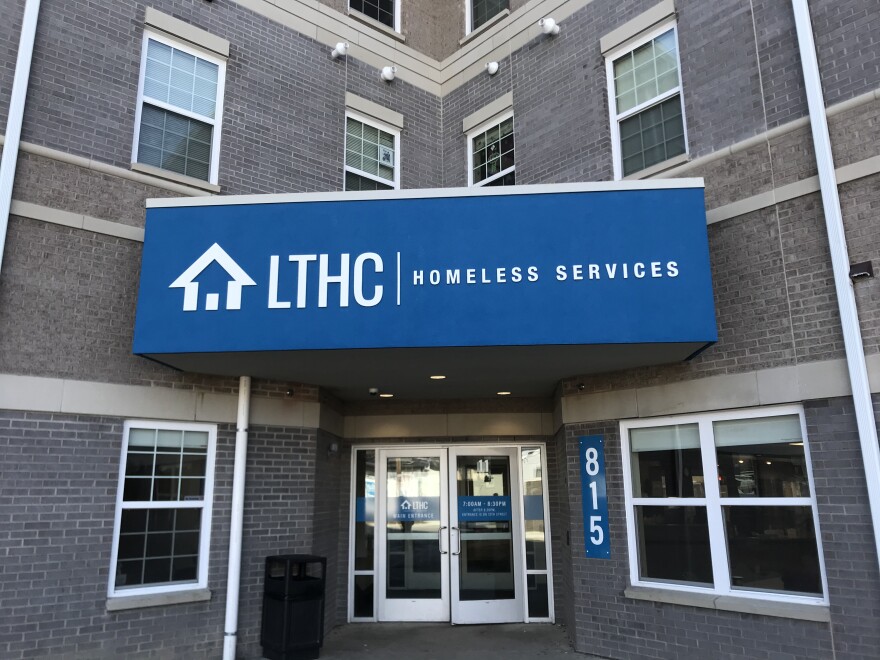Tippecanoe County’s homeless populations have started receiving vaccinations from the local health department.
Experts say it is an essential step in protecting a hard-to-reach population that is at high risk for the virus.
The Tippecanoe County Health Department announced last week that it had begun using its supply of the one-shot Johnson and Johnson vaccine to help protect the area’s homeless.
Health Department Administrator Khala Hochstedler said the department has already vaccinated roughly 40 people.
“We’ll keep going as long as we have the J&J supply,” she said. “We have a very limited supply of that vaccine right now but we want everyone who is interested in that vaccine to get a dose.”
In the community space of the Lafayette Transitional Housing Center, or LTHC, guests idled at a series of tables that have pushed apart to allow for social distancing.
Jennifer Shook is the Chief Development Officer at LTHC.
“You can see everybody’s got a mask on but you’ve probably heard a couple of reminders for people to pull it up,” she said.
Shook said the LTHC saw only about a dozen cases of COVID among their guests. And, she said, COVID doesn’t seem to have created a spike in homelessness.
“What we are seeing is that normally a person’s first safety net is to stay with friends and family,” Shook said. “That’s still happening but that length of stay seems to be shorter than it was pre-covid. There are just more stressors all the way around.”

George Whitis is a 56 year old staying with LTHC. He said he worried about catching covid, so he got a vaccine as soon as he was able.
“I was scared to death to get it. At my age and the way my health is I’d probably be one of the people that died from it,” he said. “As soon as I could get it I got it.”
Whitis said he ended up homeless after being laid off as a machine operator in Columbus, Indiana and has since struggled to find a job.
“I don’t know if it was because of the pandemic but I couldn’t find employment because of it.”

Travis McCurry is another guest planning to get vaccinated through the local health department.
“Some people said it makes you sick but the actual virus will make you sicker and can actually kill you so I’m not going to take those chances,” he said. “I’m going to go ahead and get it.”
Once the health department vaccinates the area homeless population officials say they plan to move on to local domestic violence shelters.
Allison Beggs is with the YWCA of Greater Lafayette. She said despite an increase in need, their shelter had to reduce capacity in order to protect people from the spread of the virus.
“As the pandemic continued the need for domestic violence services increased. Our traffic to our 24-hour domestic violence hotline - those calls increased,” she said. “We had to find other ways of serving clients through hotel stays to make sure they were as safe as they could be. On the other hand, some clients chose to stay in abusive relationships for fear of going into communal living spaces.”
The YWCA has decreased its number of beds from 30 to roughly 20.
Beggs said the shelter has only seen one COVID case among guests and two among staff, and all of those exposures happened outside of the shelter. But she said she’s eager to increase capacity so they can meet the community’s needs.
“It’s sad to say we want our shelter full because it shows the need and the true reflection of the severity of domestic violence in our communities.”
Beggs declined to share information about when the shelter will hold its vaccination clinic.
Like much of the vaccination rollout across the state, health officials say how quickly the community can vaccinate both homeless populations and shelters will depend on the supply of the vaccine.



